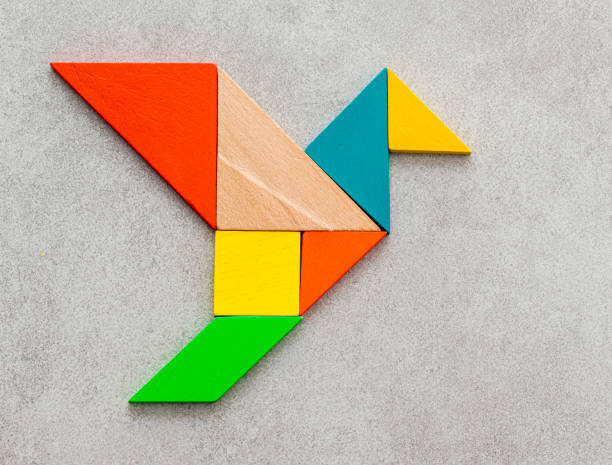As digital learning tools evolve, puzzle games educational in nature have emerged as a favorite among parents and educators alike. These games do more than entertain—they challenge a child’s cognitive abilities, develop problem-solving skills, and make learning an exciting journey.
In this blog, we’ll explore the best Puzzle Games Educational for kids that are not only fun but also highly effective for learning. Let’s dive in!
Why Choose Puzzle Games for Kids?
Before we list the top games, let’s understand why puzzle games educational are so valuable:
- Boosts Brain Development: Puzzle-solving enhances memory, critical thinking, and spatial awareness.
- Improves Concentration: Children learn to focus and pay attention to detail.
- Encourages Patience and Persistence: Solving puzzles teaches kids to try different strategies and not give up easily.
- Strengthens Motor Skills: Especially with tactile puzzles like jigsaw games or building blocks.
According to Harvard’s Center on the Developing Child, early play involving thinking and reasoning boosts lifelong learning. Puzzle games are a great way to incorporate this into a child’s routine.
1. Tangram Puzzle Sets

Tangrams are a classic yet powerful educational tool. Children arrange geometric shapes to form images, which sharpens their visual-spatial reasoning. Many apps and physical versions are now available, combining tactile learning with screen-free time.
Educational Benefits:
- Shape recognition
- Problem-solving
- Creativity
🧠 Try incorporating Tangram kits from educational toy collections on Trendy Panda, where you’ll find age-appropriate puzzle sets.
2. Sudoku for Kids
Yes, Sudoku can be made kid-friendly! Using shapes, animals, or colors instead of numbers, these versions introduce logic and strategy early on.
Skills Developed:
- Logical thinking
- Planning and sequencing
- Attention to detail
Transitioning from simple 4×4 grids to more complex puzzles helps your child grow at their own pace.
3. Jigsaw Puzzles
Among the most popular puzzle games educational, jigsaws come in various themes—from animals to world maps. Completing one teaches perseverance and fosters a sense of accomplishment.
Why It Works:
- Encourages teamwork (for group play)
- Improves visual-motor coordination
- Enhances short-term memory
Look for eco-friendly wooden puzzles at Trendy Panda’s Games & Puzzles section, perfect for preschoolers and above.
4. Maze Games and Books

Maze-solving develops spatial thinking and patience. Whether digital or printed, these puzzles are fun and easy to carry around.
Key Benefits:
- Improves navigation skills
- Boosts hand-eye coordination
- Promotes concentration
Transitioning from beginner to advanced mazes allows consistent cognitive growth.
5. Coding Puzzle Games
Apps like LightBot or Scratch Jr. offer fun ways to introduce kids to coding through puzzle-based challenges.
Educational Focus:
- Programming logic
- Sequencing
- Cause and effect understanding
These puzzle games educational by design lay a solid foundation for STEM learning in a highly engaging format.
6. Memory Match Games
Memory-based puzzles improve a child’s ability to retain and recall information. Themes like animals, fruits, or alphabet cards keep the games fresh and exciting.
Benefits:
- Boosts memory retention
- Builds vocabulary
- Enhances visual discrimination
Games like these are ideal for younger kids just starting their puzzle journey.
7. Building Block Puzzles
Combining creativity with construction, block puzzles—like LEGO kits or magnetic tiles—offer open-ended play while solving engineering challenges.
What Kids Learn:
- 3D visualization
- Critical thinking
- Fine motor skills
Many sets now include instruction-based puzzles, guiding children through design blueprints.
8. Word Puzzle Games
Crosswords, word searches, and spelling puzzles improve literacy skills. Whether digital or printed, these games engage kids in fun vocabulary practice.
Why It’s Effective:
- Expands vocabulary
- Enhances spelling accuracy
- Boosts language comprehension
Encourage daily word puzzles as a part of your child’s screen-free time.
9. Puzzle Storybooks
Blending storytelling and puzzles, these books ask kids to solve riddles or find hidden clues within each chapter. They promote reading comprehension alongside logic.
Learning Outcomes:
- Improves reading skills
- Encourages imagination
- Develops sequencing and deduction
These are a great tool for reluctant readers, combining fun with literacy.
10. Online Educational Puzzle Platforms
Web-based platforms like ABCmouse and PBS Kids offer a wide selection of puzzle games educational in every subject, from math to geography.
What to Expect:
- Age-targeted learning
- Interactive quizzes
- Progress tracking
Be sure to set screen-time boundaries while exploring these options.
Tips for Choosing the Right Puzzle Game
When selecting a puzzle game educational for your child, consider the following:
- Age Appropriateness: Choose puzzles suitable for your child’s cognitive level.
- Subject Focus: Pick games aligned with your child’s learning needs—math, language, logic, etc.
- Balance of Fun and Challenge: Games should be neither too easy nor frustrating.
- Physical vs. Digital: Balance screen time with hands-on activities like jigsaws or blocks.
For curated age-wise puzzle sets and learning toys, explore the Trendy Panda collection of kids’ educational toys and puzzles.
Final Thoughts
Puzzle games educational in nature are more than a pastime—they’re a foundation for essential life skills. From improving memory to encouraging strategic thinking, these games support your child’s development while keeping them engaged.
Whether it’s solving a Tangram, navigating a maze, or decoding a word puzzle, there’s a perfect option for every age group. Start incorporating these educational games into your child’s playtime to turn fun into lifelong learning.
For a wide selection of educational toys, puzzles, and learning kits, visit Trendy Panda today!






